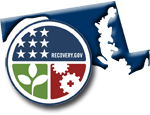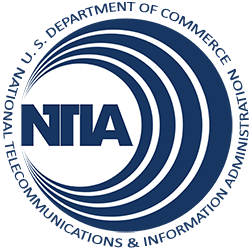Broadband’s ability to expand educational and employment opportunities is especially meaningful for Americans who are deaf or hard of hearing, a community that faces unique challenges in education and that suffers from a rate of unemployment much higher than the national average. Communication Service for the Deaf, Inc. (CSD) intends to expand broadband adoption among people who are deaf and hard of hearing and provide them with online tools to more fully participate in the digital economy. The project proposes to employ a combination of discounted broadband service and specialized computers, technology training from an online state-of-the art support center customized to the community’s needs, public access to videophones at anchor institutions from coast to coast, and a nationwide outreach initiative. Thousands will gain online access to all the Internet has to offer, including sign language interpreters, captioned video services, and other content and functionalities designed especially to advance their educational, employment, and healthcare interests.
Maryland

| Grantee | Total Award | Type |
|---|---|---|
| Communication Service for the Deaf, Inc. | $14,988,657 | Sustainable Adoption |
| Coppin State University | $932,116 | Public Computer Centers |
| Maryland Broadband Cooperative | $4,755,768 | Broadband Data & Development |
| Maryland Department of Information Technology | $115,240,581 | Infrastructure |
| Mission Economic Development Agency | $3,724,128 | Public Computer Centers |
| One Economy Corporation | $28,519,482 | Sustainable Adoption |
| University Corporation for Advanced Internet Development | $62,540,162 | Infrastructure |
The Coppin Heights-Rosemont Family Computer Center project plans to provide broadband access and computer education to the Coppin Heights-Rosemont community, a low-income neighborhood in Baltimore, Maryland with a high minority population. Consistent with the community’s exisiting revitalization plan, Coppin State University will establish a 60-workstation computer center for use by the local community, and anticipates offering 15 training and educational courses on a regular basis, serving more than 500 users per week and more than 12,000 unique users within two years. Courses will be designed to attract the participation of entire families to improve their education, health, and quality of life. The project will encourage interaction between Coppin State students and faculty and the community by bringing students and faculty into the center to teach and assist users in computer skills. Over the course of the grant, university students and faculty are expected to provide more than 7,500 hours of volunteer service.
Project Components
State Broadband Capacity Building:
This project will establish three positions within the Maryland Department of Information Technology. These positions will be charged with carrying out the state’s broadband plan, providing leadership for broadband planning, assisting community and business institutions in implementing broadband usage, collecting benchmark data, and assisting state agencies in reaching out to their constituents
Data Collection, Integration, and Validation:
This project was originally funded for broadband planning activities and two years of data collection. In September of 2010, this project was amended to extend data collection activities for an additional three years and to identify and implement best practices.
Many of the less-populous, rural areas of Maryland, like the western panhandle and the eastern shore, lack the
reliable and readily-available broadband service necessary for cutting-edge economic development, public
safety, and remote education initiatives. The State of Maryland Department of Information Technology
(DoIT), as part of a public-private consortium, plans to deploy the One Maryland Broadband Network to bring
affordable and abundant broadband to each of Maryland’s 24 counties. The OMBN was established to serve the
broadband needs of the entire state. The project would link together and extend three independent networks:
the state-run networkMaryland; the Inter-County Broadband Network (ICBN), a 10-county consortium; and the
Maryland Broadband Cooperative (MdBC), a rural non-profit carrier. The nearly 650 miles of new fiber in the
rural portions of the state would substantially improve public safety, government services, healthcare delivery,
and education, offering community anchor institutions access speeds between 10 Mbps and 10 Gbps.
The Mission Economic Development Agency, in collaboration with the National Association for Latino Community Asset Builders and a national network of Latino-serving economic development organizations, plans to create 12 new public computer centers and expand five existing ones in 13 communities throughout the United States. Each center expects to operate on the project’s centrally managed network and provide computer training and adult education to a low broadband adoption, high unemployment target population through a standardized English-Spanish training curriculum. The project expects to add a total of 263 new workstations and replace 37 existing workstations, enabling the centers to serve an additional 2,500 users per week and train an estimated 3,000 users per year. Broadband capabilities at each center will be increased to speeds of 1.5 Mbps. Public computer centers funded through this grant will be located in Phoenix, AZ; Canoga Park, Los Angeles, and San Francisco, CA; Del Norte, CO; Blackfoot, ID; Wheaton, MD; Minneapolis, MN; Kansas City, MO; Anthony, NM; Philadelphia, PA; and San Antonio and Laredo, TX.
The 21st Century Information and Support Ecosystem project proposes to implement a comprehensive program of computer training, wireless Internet access, broadband awareness marketing, and online content and applications to residents of 159 affordable and public housing developments and low-income communities in 50 cities and towns across 31 states and the District of Columbia. The project plans to implement four principal programs: training 2,500 youth to become “Digital Connectors” who will then provide digital literacy training to others in their communities; deploying localized broadband networks in public housing developments; developing online content and applications aimed at low-income, low-literacy audiences.
As part of a longstanding project to connect essential community anchor institutions across the country, and facilitate closer collaboration and long-term benefits for education, research, healthcare, public safety, and government services, the University Corporation for Advanced Internet Development (UCAID) proposes a comprehensive 50-state network benefitting approximately 121,000 community anchors. The project proposes a large-scale, public-private partnership to interconnect more than 30 existing research and education networks, creating a dedicated 100-200 Gbps nationwide fiber backbone with 3.2 terabits per second (TBps) total capacity that would enable advanced networking features such as IPv6 and video multicasting. The project plans to connect community anchors across all disciplines into virtual communities with shared goals and objectives, including colleges, universities, libraries, major veterans and other health care facilities, and public safety entities, with additional benefits to tribes, vulnerable populations, and government entities.
